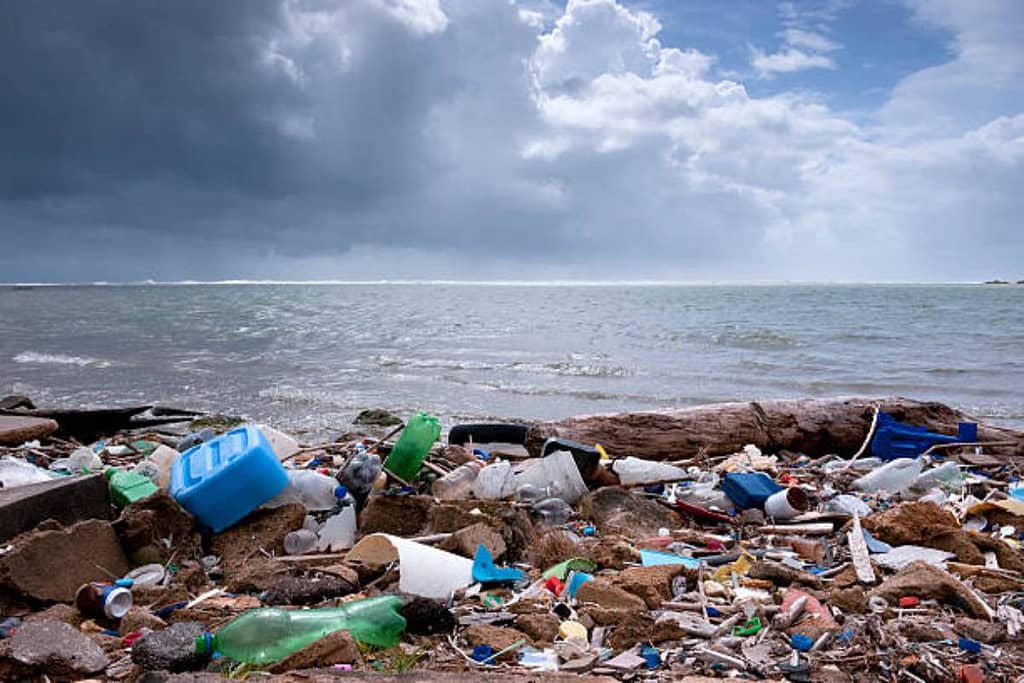By Oscar Kimani & Dan Kaburu
Environmental advocates have issued a stark warning about the escalating threat of plastic waste in the Indian Ocean and along beaches, urging for enhanced waste management strategies across coastal areas.
During a recent clean-up initiative at Mazingira Beach in Kilifi County, led by Jimmy Kahindia, the County’s Environment Director, concerns were raised over the absence of comprehensive legislation governing microplastic management. Kahindia stressed the urgency for policies to ban specific types of plastics to safeguard coastal environments, advocating for regional collaboration to tackle cross-border plastic pollution.
Ten-year-old climate activist Alice Wanjiru highlighted the critical role oceans play in global ecosystems, underscoring their importance as a vital source of food and livelihood. Despite their significance, oceans face mounting threats from pollution, overfishing, and climate change. Wanjiru emphasized the immediate need for concerted efforts to address littering and plastic waste that endanger marine life and degrade precious ecosystems.

The 2021-2030 National Marine Litter Management Action Plan, jointly developed by Kenya’s Environment Ministry and NEMA, values the coastal and marine ecosystems at over $4.4 billion annually. However, these ecosystems remain under severe strain from climate change, habitat destruction, and pollution, as outlined in the plan.
Stephen Otieno, a leader in a local environmental organization, highlighted the persistent threat posed by plastic waste in ocean waters, where its decomposition takes an extensive period. Otieno stressed the potential risks posed to marine organisms and human health from microplastic absorption.
Despite Kenya’s ban on single-use plastics since 2020, the sale of plastic bottles for water and refreshments continues unabated along coastal beaches. A 2018 UN Environment Programme report highlighted Africa’s significant challenge with plastic waste mismanagement, with Kenya projected to exceed 100,000 tonnes of plastic waste entering the Indian Ocean annually if current trends persist.
As the newly appointed climate change ambassador for the Kenya Scouts Movement, Wanjiru called for collaborative efforts to reverse environmental degradation and promote sustainable ocean conservation. She emphasized the role of individuals, government officials, community leaders, and advocates in effecting change through beach clean-ups, reduced plastic consumption, and support for conservation initiatives.

Research conducted by Kemfri revealed the presence of microplastics in coastal waters across several Kenyan regions, underscoring the pervasive nature of plastic pollution. Psychologist Pius Makhoha highlighted the mental health implications of climate change-related health issues, stressing the stress and financial burden on affected individuals.
To address the plastic waste crisis, stakeholders including coastal hoteliers and tourists were urged to actively participate in educational initiatives. Kahindia emphasized the need for adequate government resources to support these efforts, crucial for advancing the blue economy agenda.
According to the NEMA 2017 State of Coast Report for Kenya, marine litter poses serious threats to marine life, navigation safety, and human health.
In conclusion, concerted efforts are essential to combat plastic pollution along Kenya’s coastline, safeguarding marine ecosystems and promoting sustainable environmental practices.




